Key takeaways
- Medusa’s story has evolved from a beautiful maiden to a symbol of fear, reflecting themes of punishment and transformative power.
- Her origins likely stem from cautionary tales, emphasizing the interplay between narrative and cultural values over time.
- Researching legends like Medusa reveals insights into human nature, illustrating how myths shape our understanding of fear and otherness.
- Paranormal investigation requires a balance of scientific tools and open-minded curiosity, transforming exploration into deeper understanding.
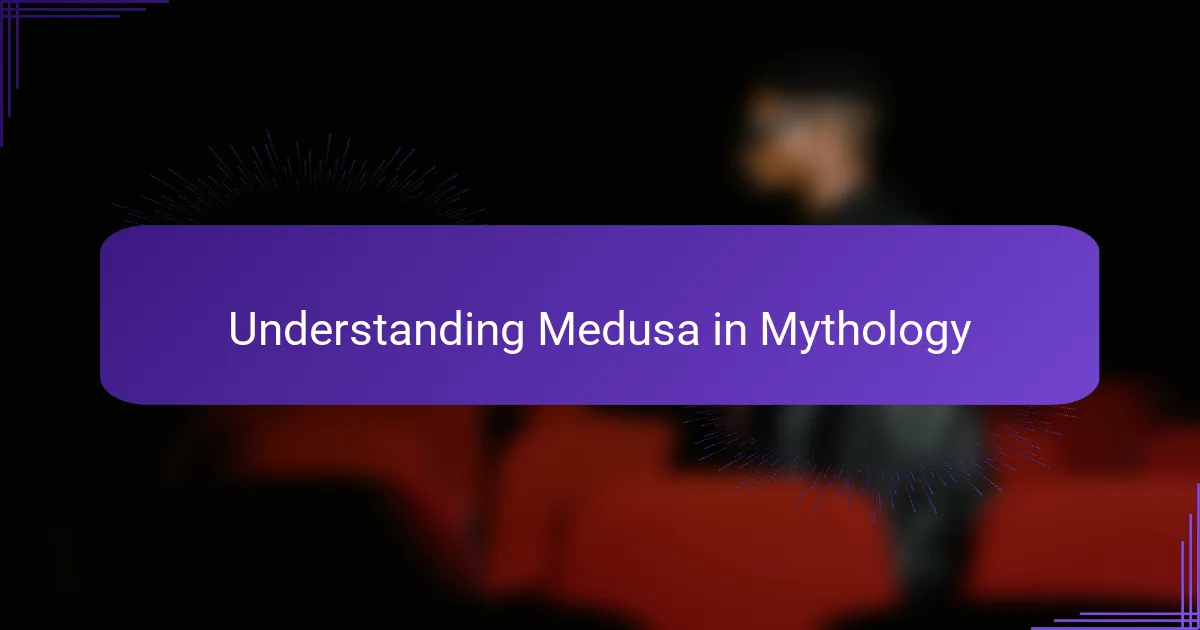
Understanding Medusa in Mythology
Medusa is often the first figure that springs to mind when we think of Greek mythology’s darker corners. But have you ever wondered why her story has lasted through centuries? From my readings, I came to see her not just as a monster, but as a powerful symbol of fear and transformation.
What strikes me most is how Medusa’s image shifted over time—from a beautiful maiden to a terrifying creature whose gaze could turn people to stone. This transformation made me question: was she always meant to be a villain? Exploring this, I realized that her story reflects deeper themes of punishment, victimization, and misunderstood power.
When I first encountered Medusa’s myth, I felt a mix of fear and fascination. That emotion, I think, is why her legend endures in paranormal stories. She embodies the unknown, something both alluring and dangerous—something I suspect fascinates us because it mirrors our own fears and mysteries.
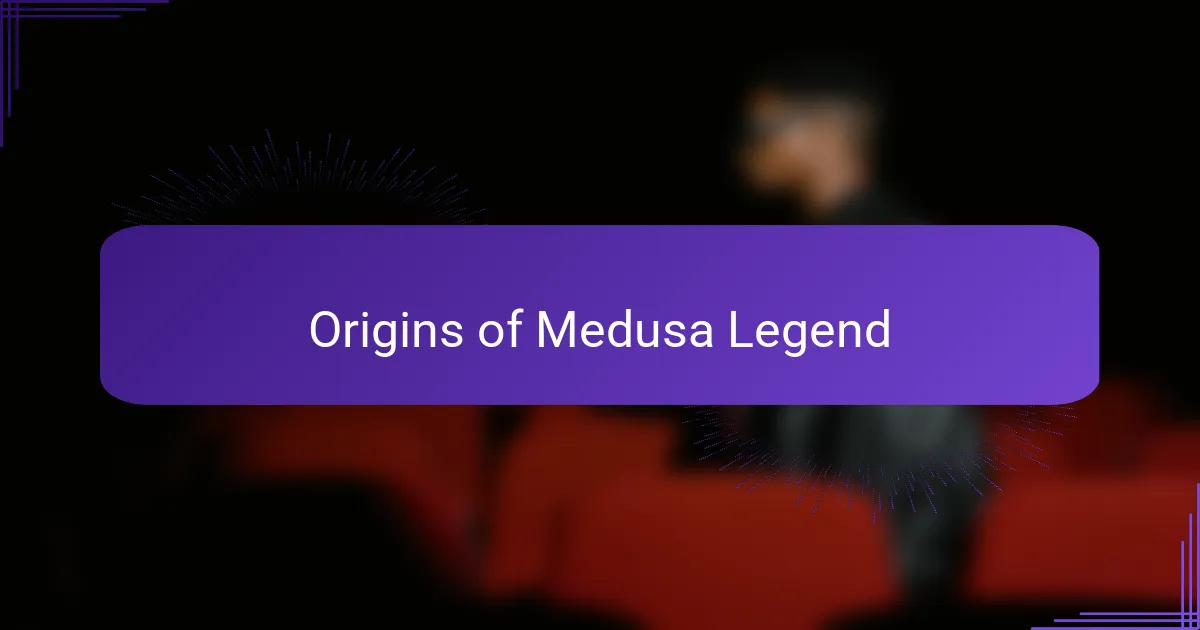
Origins of Medusa Legend
Tracing Medusa’s origins took me back to ancient Greece, where myths were woven to explain the world’s mysteries. What surprised me was how her story likely began as a cautionary tale about divine punishment rather than just a monster’s legend. Could it be that Medusa was once seen more as a tragic figure than a villain?
I dug into early texts and found that Medusa’s beauty was emphasized before her curse, which made me wonder how fear can twist a narrative over time. It felt like discovering a hidden layer—a reminder that legends evolve with the cultural fears and values of each era. Have you ever realized how much our interpretation of myths says about us, not just the stories themselves?
What really struck me was uncovering the possible roots of Medusa’s tale linked to ancient rituals and symbolic meanings of snakes and protection. This added a whole new dimension to her legend that went beyond mere horror. It made me think about how much of the paranormal fascination with Medusa is rooted in a human desire to understand the unknown, wrapped in symbolism and mystery.
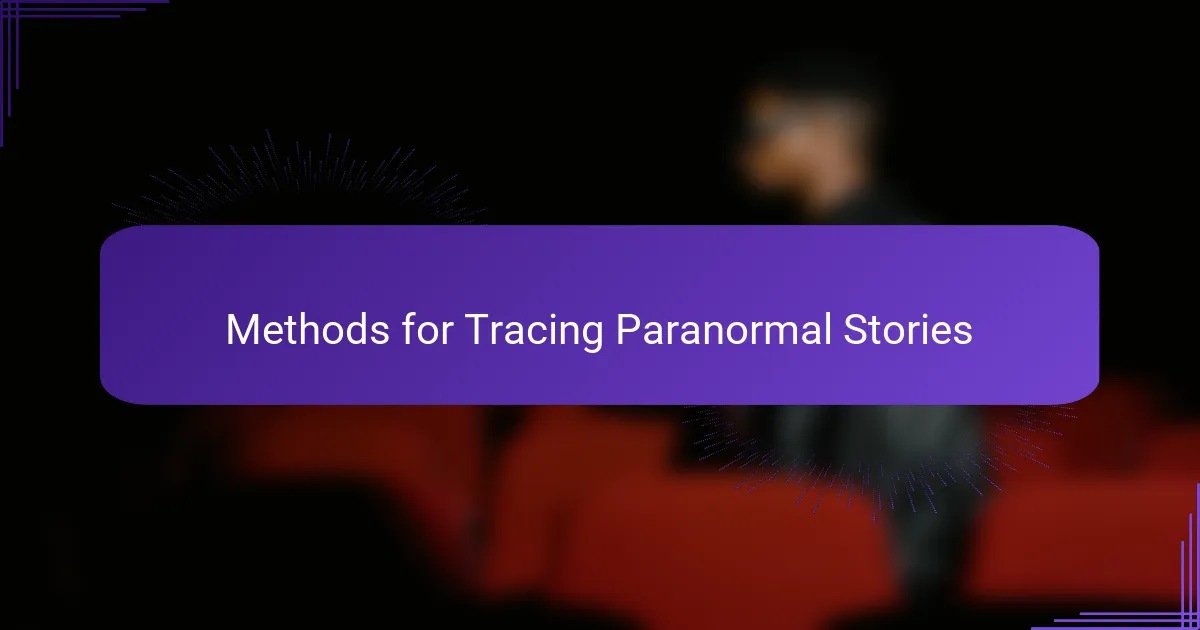
Methods for Tracing Paranormal Stories
When I set out to trace paranormal stories like Medusa’s, I quickly realized that solid research is essential. I leaned heavily on old texts and folklore archives, treating each source like a puzzle piece. It’s fascinating how even the tiniest detail can shift the entire narrative.
Sometimes, I relied on interviews with historians and local experts who carry oral traditions passed down through generations. Their firsthand stories added a layer no written record could capture—something raw and alive that brought the legend closer to reality. Have you ever noticed how stories change when told aloud, like they take on a life of their own?
Cross-referencing was my go-to method to separate fact from embellishment. I found that checking multiple versions of a tale helps filter out exaggerations without losing the core truth. It made me wonder: how much of what we accept as paranormal is actually a blend of history and human imagination?
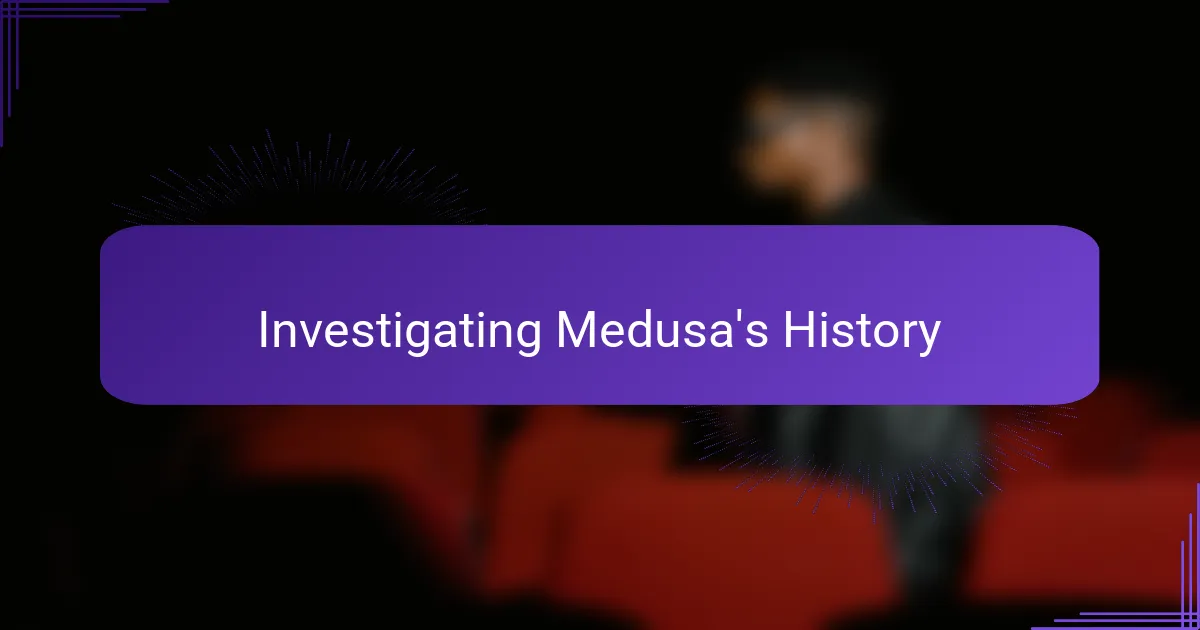
Investigating Medusa’s History
Peeling back the layers of Medusa’s history felt like stepping into a labyrinth, where every source led me deeper into ancient cultures and shifting beliefs. I remember the moment I stumbled upon a fragmented vase painting that hinted at her earlier, less monstrous portrayal—it made me pause and rethink everything I thought I knew. Isn’t it remarkable how artifacts can whisper stories that challenge our assumptions?
What fascinated me was tracing how Medusa’s narrative morphed through centuries of retellings. Each era seemed to reshape her image to mirror its own fears and values, turning a once-tragic figure into a symbol of terror. Have you ever wondered how much legends are shaped by the storytellers rather than the original events themselves?
As I pieced together Medusa’s origins, it became clear that investigating her history isn’t just about myth or legend—it’s about understanding human nature and our need to personify the inexplicable. This journey made me question: what does our fascination with Medusa reveal about how we confront fear and otherness in our own lives?
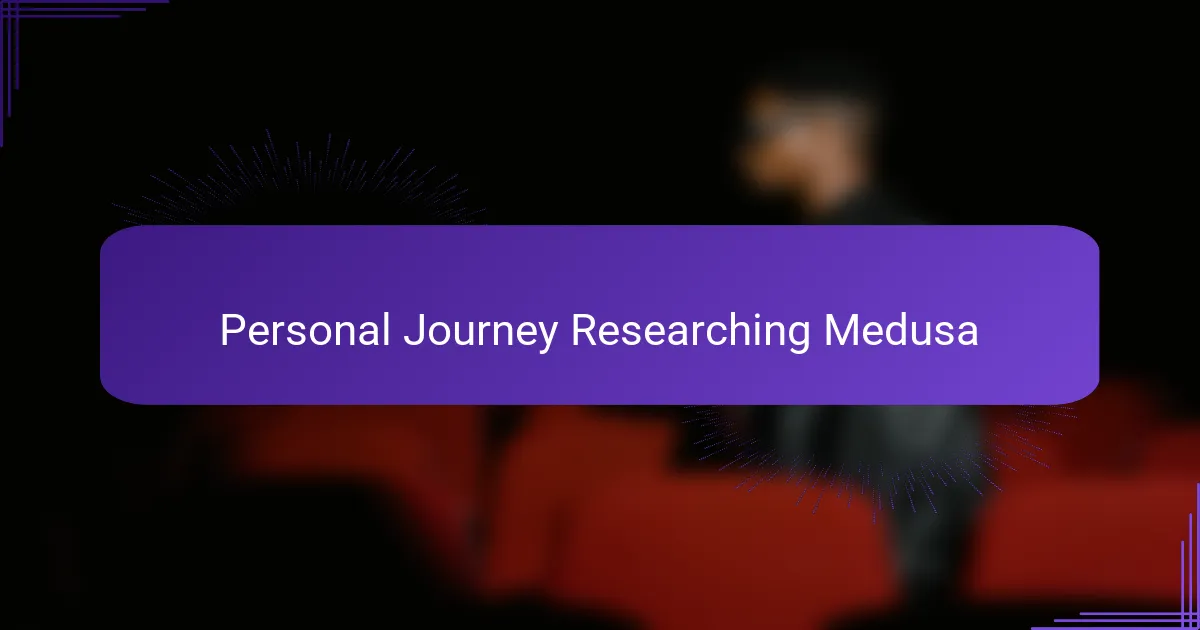
Personal Journey Researching Medusa
Diving into Medusa’s world was more than just academic for me—it felt personal, like unraveling a mystery that had haunted me since childhood. I found myself captivated by how each new piece of evidence added depth to a figure I thought I already knew. Have you ever had that moment when a familiar story suddenly feels alive and full of new meaning?
At times, the research was overwhelming, sifting through conflicting sources and trying to separate fact from folklore. Yet, every challenge made the discoveries sweeter, especially when I stumbled upon unexpected clues like ancient art or forgotten texts. It was like piecing together a puzzle that stretched across time, and it made me appreciate the patience and passion required to chase down a legend’s roots.
What struck me most was how Medusa’s tale resonated with emotions we all recognize—fear, injustice, transformation. Exploring her story wasn’t just about myths; it became a journey into understanding how stories shape who we are and how we face the unknown. Doesn’t that make you wonder which legends in your own life are waiting to be rediscovered?
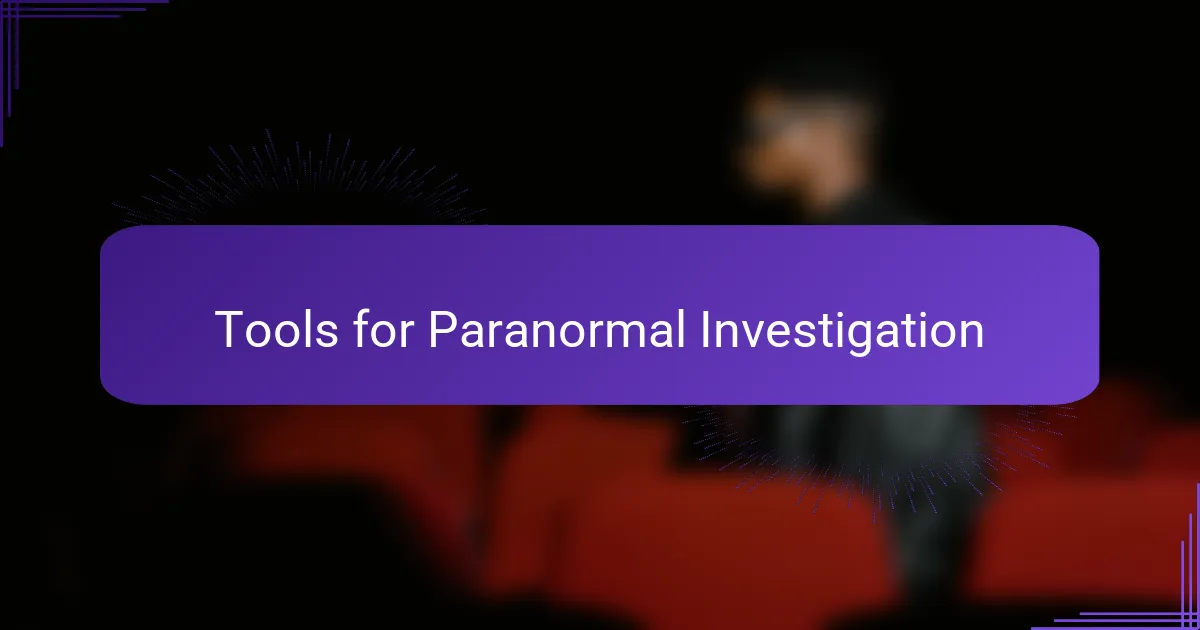
Tools for Paranormal Investigation
When I first embarked on paranormal investigations, I quickly learned that having the right tools is indispensable. Devices like EMF meters, which measure electromagnetic fields, often help detect energy anomalies that we can’t see with our eyes. I remember the thrill of holding one in a dim room, the needle flitting unpredictably—it felt like a subtle heartbeat of the unknown.
Cameras and voice recorders became my constant companions, especially when chasing elusive phenomena. Capturing unexplained shadows or mysterious sounds sometimes felt like catching glimpses of a hidden world. Have you ever experienced that rush, where a simple beep or flicker hints at something beyond explanation? Those moments remind me why technology, alongside intuition, plays such a pivotal role in paranormal work.
But tools alone don’t tell the whole story. I found that combining scientific devices with an open mind transforms an investigation from guesswork into exploration. It made me realize that while gadgets provide evidence, it’s our curiosity and willingness to question reality that truly uncover the mysteries lurking in shadows. Isn’t that blend of logic and wonder what keeps paranormal investigation endlessly fascinating?
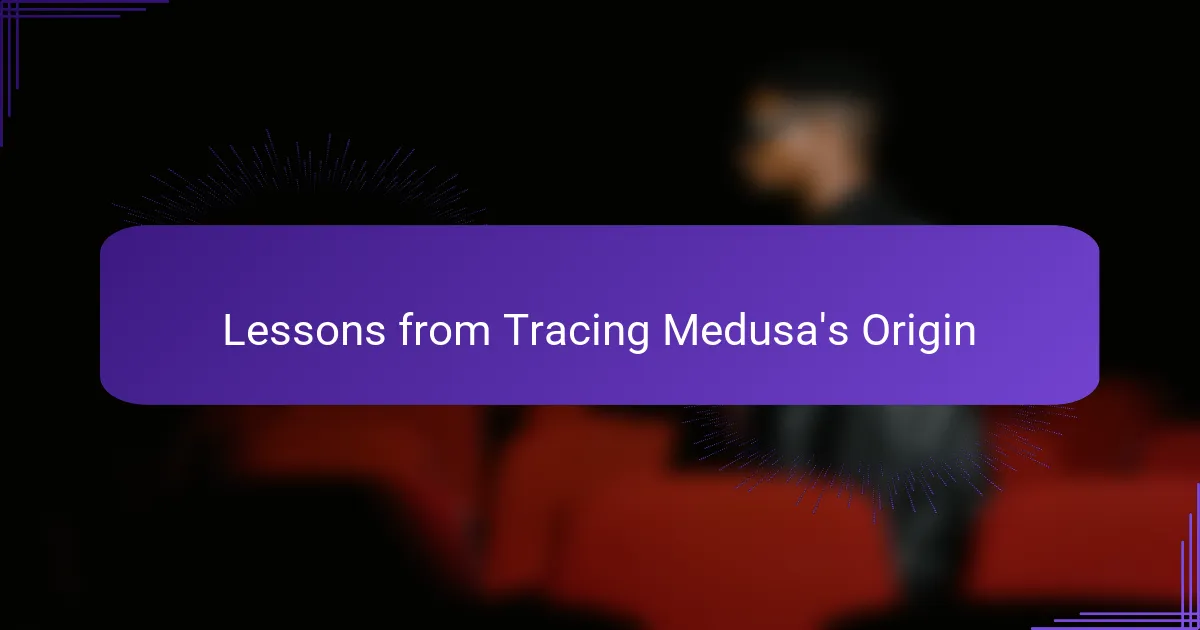
Lessons from Tracing Medusa’s Origin
Tracing Medusa’s origin taught me that legends aren’t just static stories—they evolve, shaped by the fears and values of each generation. I found myself reflecting on how quickly narratives can twist, turning victims into villains or symbols into monsters. Have you ever paused to consider how much of what we fear is actually a mirror of our own changing beliefs?
One lesson I keep coming back to is the importance of looking beyond the surface. Medusa’s story reminded me that beneath every myth lies a richer, more complex truth waiting to be uncovered. It felt like peeling back layers of history, culture, and emotion—each revealing new insights about human nature and our need to explain the unknown.
Ultimately, tracing Medusa’s roots made me realize that exploring paranormal tales is as much about understanding ourselves as it is about uncovering ancient secrets. What does it say about us that we hold on to these stories with such fascination? For me, it’s a reminder that myths connect us deeply to the past, helping us navigate the mysteries within and around us.